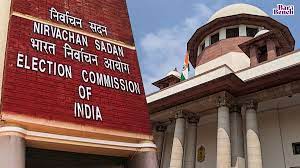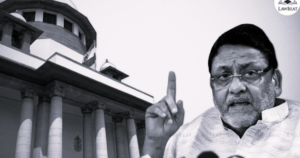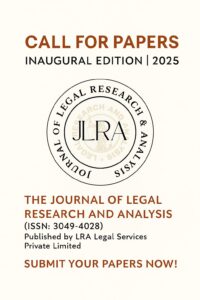
The Center's prerogative diluted

On 2nd March 2023, Thursday, the Hon’ble Supreme Court of India passed a landmark judgment on the appointment of Chief Election Commissioner (CEC) and Election Commissioners. The judgment was delivered by a constitution bench composed of five judges led by Justice K.M. Joseph. The apex court was hearing petitions seeking to streamline the process of selection of the Chief Election Commissioner on the same lines as is done for the Director of the Central Bureau of Investigation (CBI).
The five-judge bench unanimously ruled that a committee would be set up to select the CEC and other Election Commissioners. Such a committee would be composed of the Prime Minister, the Chief Justice of India, and the Leader of the Opposition in the Lok Sabha. On the advice rendered by such a committee, the President shall appoint the Election Commissioners.
STANCE OF SUPREME COURT ON APPOINTMENT OF ELECTION COMMISSIONERS
The apex court took up the petitions seeking to bring reforms in the appointment of Election Commissioners by asserting that the court must consider any process that attempts to improvise the election procedures. The bench took note of the fact that though several political parties came to power none of them bothered to legislate upon the appointment of Election Commissioners.
The court at length discussed the duties of the Election Commission. It emphasized that the commission is obligated to remain aloof from all kinds of impacts by the executive. It further said that a vulnerable Election Commission is bound to not perform its functions efficiently. The bench reiterated that the Election Commission must ensure that the constitutional provisions are adhered to. The Hon’ble court expressed that if a person remains obligated to his appointor, he will surely fail the nation and that he must not have any position in the election process which is the foundation of our democracy.
On the contrary
The Constitution of India has granted the President the power to make appointments to the Election Commission. This power is derived from Article 324 of the Constitution. The judgment by the Justice Joseph bench seems an intrusion into Article 324. The question may also arise that while there lies no accountability in the appointment of the Chief Justice of India (CJI), then how can the impartiality of the CJI be estimated? Certain legal observers opine that the apex court to justify its judicial overreach drew a hypothesis that the Election Commission is corrupt. However, if the hypothesis is true, then the incumbent political parties must continue their winning streak making it impossible for any other political faction to assume power.

We have seen the election results in states like West Bengal where questions were raised on the integrity of the Election Commission but once the results were out, there was no hue and cry. The question which the Supreme Court is bound to face is if the process of appointment of Election Commissioners needs to be made more transparent and accountable, then what about the accountability of the collegium for judges’ appointment? The National Judicial Appointments Commission (NJAC) was an attempt to make the appointment process of judges transparent but it was ruled unconstitutional by the apex court.
The important point to mention here is that the discussed ruling of the Supreme Court will remain effective unless and until parliament makes a law concerning the appointment of Election Commissioners. How the principle of separation of powers is streamlined in such a case would be pertinent to observe once the legislature introduces a bill for the same in the parliament.







